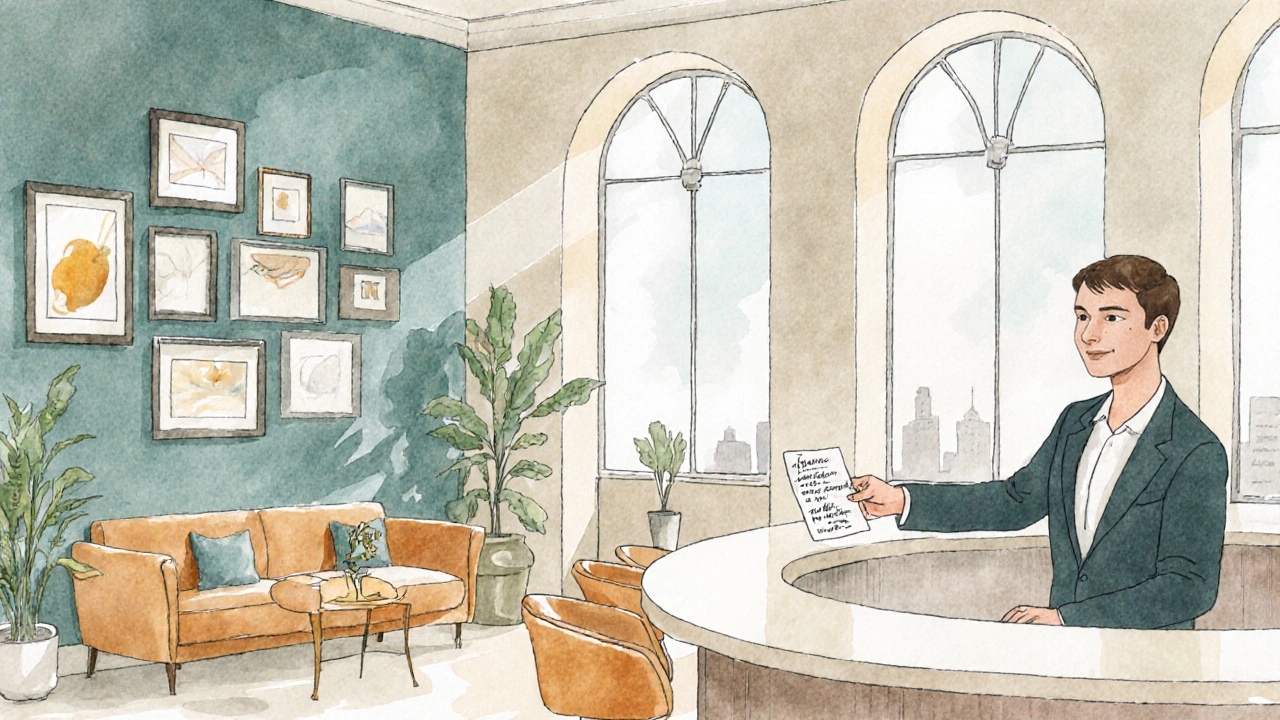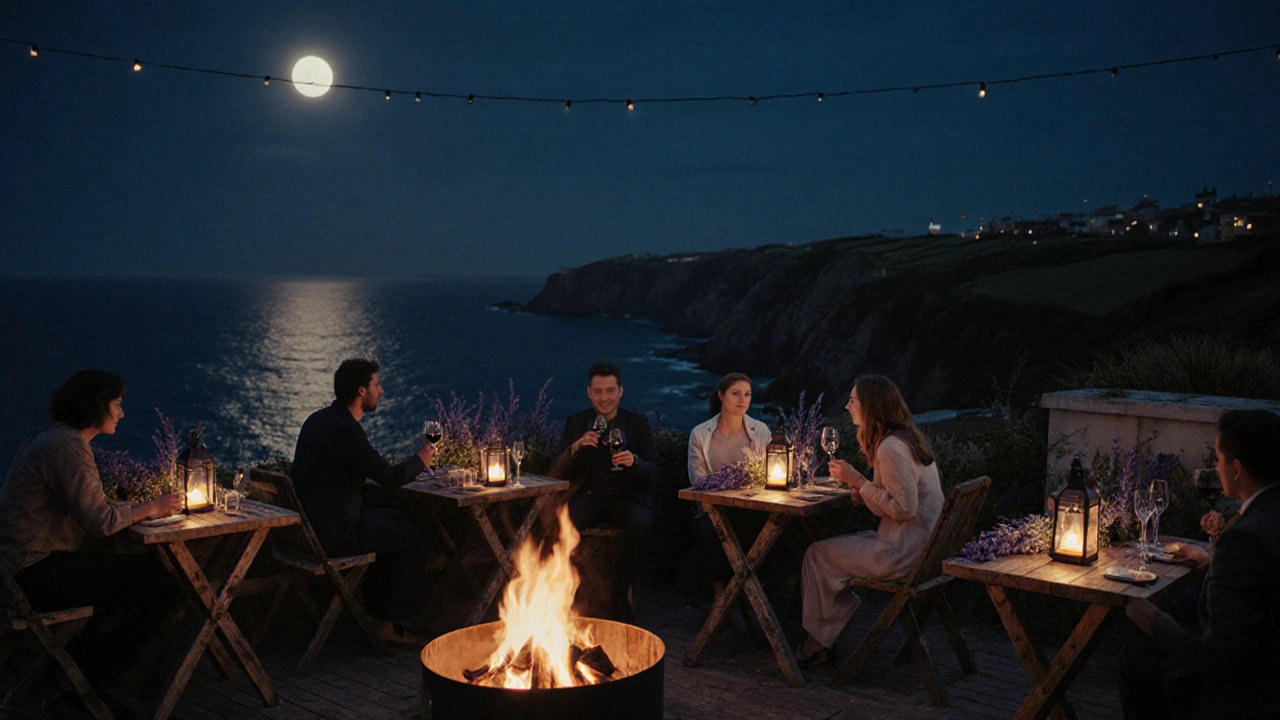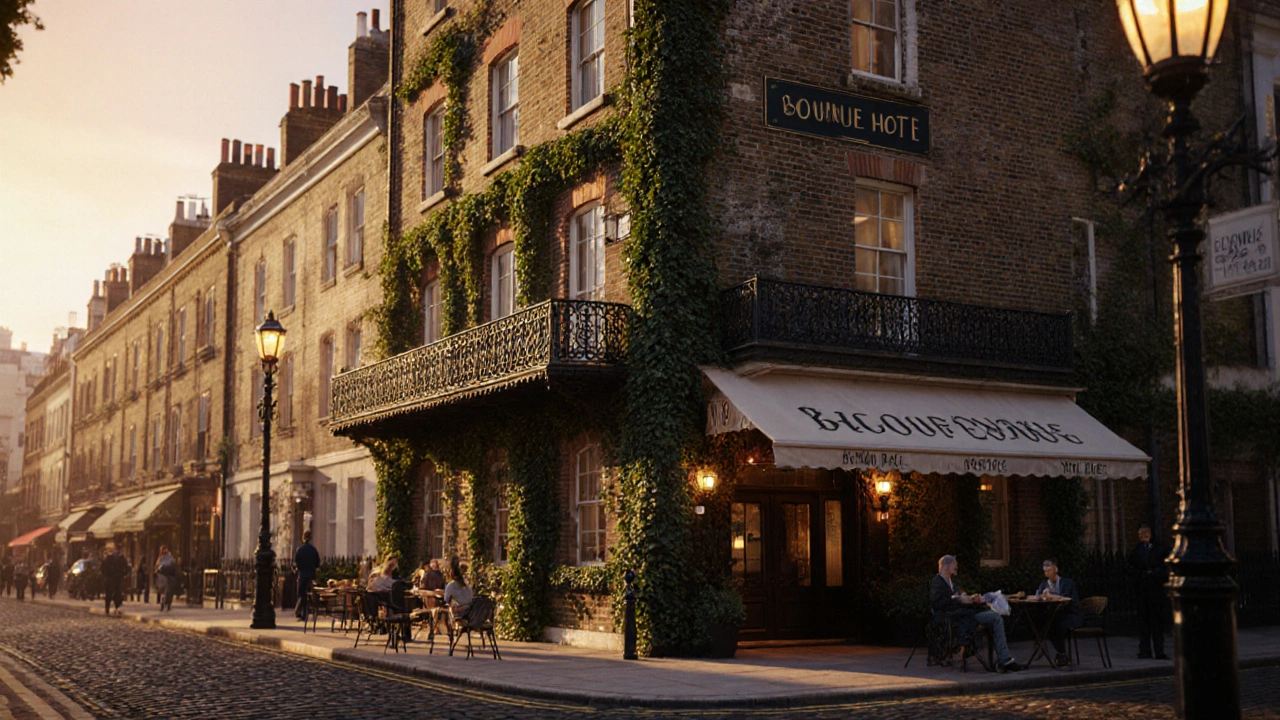Boutique Hotel vs Chain Hotel Comparison Tool
Compare Boutique vs Chain Hotels
See how these hotel types differ across key dimensions
Small, independent properties with personalized service
Larger properties with standardized service
Why Compare?
Understanding the differences helps you choose the right hotel for your travel style. Boutique hotels offer unique experiences, while chain hotels provide consistent service and loyalty programs.
Quick Takeaways
- A boutique hotel is a small, independent property that focuses on design, local culture, and personalized service.
- Typically 10‑100 rooms, each with a unique style rather than a standardized look.
- They differ from chain hotels in size, ownership, and guest experience.
- Price ranges vary widely, but guests often pay for the "experience" factor.
- When booking, look for authenticity, local partnerships, and guest‑centric amenities.
When you hear the term Boutique hotel a small, independently owned hotel that emphasizes design, local flavor, and personalized service, you probably imagine a stylish property tucked in a historic building or a trendy neighbourhood. But what exactly makes a hotel "boutique"? This guide breaks down the meaning, core characteristics, and how boutique hotels stack up against larger chains.
Defining the Boutique Hotel
A Boutique hotel is a boutique‑scale lodging option, usually under 100 rooms, owned or operated independently and designed to provide a distinctive, often locally‑inspired experience. It isn’t just about size; it’s about intent. Owners aim to craft an atmosphere that reflects the surrounding community, history, or artistic vision, rather than following a corporate brand template.
Key Characteristics
- Size matters: Most boutique hotels have 10‑100 rooms, allowing staff to remember repeat guests by name.
- Design‑driven: Interior design is a focal point, often featuring custom furniture, local artwork, and unique architecture.
- Local culture: Partnerships with nearby restaurants, galleries, and cultural tours integrate the property into its neighbourhood.
- Personalized service: From handwritten welcome notes to tailored itinerary suggestions, staff often go the extra mile.
- Independent ownership: While some boutique hotels belong to small collections, they are not part of the major global chains.

How Boutique Hotels Differ from Chain Hotels
| Aspect | Boutique Hotel | Chain Hotel | Luxury Hotel |
|---|---|---|---|
| Room Count | 10‑100 | 100‑500+ | 150‑600+ |
| Ownership | Independent or small group | Corporate franchise | Often independent but with high‑end brand backing |
| Design | Unique, locally‑inspired | Standardized across locations | Opulent, often iconic architecture |
| Service Style | Highly personalized | Consistent, process‑driven | Tailored luxury, often with butlers |
| Pricing | Mid‑to‑high range, value‑based on experience | Variable, often economy to mid‑scale | Premium, premium‑plus |
Typical Locations and Design Themes
Boutique hotels thrive in areas where the surroundings can add narrative value. Think historic city centres, arts districts, vineyard regions, or beachfront promenades. Design themes often echo the locale:
- In Paris, a former mansion may retain original mouldings and feature a palette of muted pastels.
- In Melbourne’s laneways, a hotel might showcase street art and industrial loft interiors.
- In Napa Valley, vineyard‑view rooms and reclaimed wood create a rustic‑luxury vibe.
These themes aren’t just decoration; they tell a story that makes guests feel like they belong to the place, not just passing through.
Price Range and Target Audience
Because boutique hotels sell an experience, pricing aligns with perceived value rather than merely square footage. In 2025, typical nightly rates in major cities range from $150 for a stylish city‑center property to $450 for a landmarked heritage hotel. Luxury‑tier boutique properties in high‑demand locations can exceed $700.
The primary audience includes:
- Millennial and Gen‑Z travellers seeking authentic, Instagram‑worthy stays.
- Couples on romantic getaways who value atmosphere over space.
- Business travellers who appreciate a quieter, more personalized environment.
Booking Tips: What to Look For
- Read guest reviews for mentions of "personal touch" or "local recommendations".
- Check the hotel's website for information on partnerships with local chefs, tours, or artisans.
- Verify the room count if you prefer a truly intimate setting; some hotels branding themselves as boutique may exceed 150 rooms.
- Look for amenities that match your travel style-e.g., a curated library, an on‑site art gallery, or a rooftop terrace with city views.
- Contact the property directly for any special requests; boutique staff often accommodate them without the bureaucracy of large chains.

Pros and Cons
| Pros | Cons |
|---|---|
| Unique design and atmosphere | Fewer on‑site facilities (e.g., large gyms) |
| Personalized service and local insights | Higher price per night compared to standard chains |
| Closer connection to neighbourhood culture | Limited brand loyalty programs |
| Often quieter, less corporate feel | Smaller rooms in historic buildings may have quirks |
Real‑World Examples
Here are a few well‑known boutique hotels that illustrate the diversity of the concept:
- The NoMad Hotel in New York City, located in a historic bank building and featuring a cocktail‑centric bar.
- The Hoxton with locations in London, Paris and LosAngeles, known for its community‑focused lobby spaces.
- Hotel San José in Austin, Texas, offering retro‑vibe rooms and a rooftop pool overlooking the city skyline.
Each of these properties leverages its locale, design, and service style to create a memorable stay that goes beyond a generic hotel experience.
Why the boutique hotel Experience Matters
Travelers today crave stories, not just rooms. A boutique hotel turns a night’s stay into a narrative-whether it’s sipping coffee in a courtyard that once housed a silk merchant, or discovering a hidden speakeasy curated by the owner. That narrative can become the highlight of a trip, encouraging repeat visits and word‑of‑mouth referrals.
Frequently Asked Questions
What size does a boutique hotel usually have?
Most boutique hotels have between 10 and 100 rooms, allowing for a more intimate atmosphere and personalized service.
Are boutique hotels always expensive?
Not necessarily. While many boutique hotels command premium rates for their design and experience, there are affordable options-especially in secondary cities or off‑season periods.
How do boutique hotels differ from luxury hotels?
Luxury hotels focus on opulent amenities and extensive service staff, often across many locations. Boutique hotels prioritize uniqueness, local culture, and a personal touch, which may or may not include ultra‑luxury features.
Can I earn loyalty points at a boutique hotel?
Some boutique hotels belong to small independent collections that offer their own loyalty programs, but they typically lack the extensive point systems of major chains.
What should I look for when booking a boutique hotel?
Check the property’s design ethos, guest‑review mentions of personalized service, proximity to local attractions, and whether the hotel highlights partnerships with nearby restaurants or artists.

